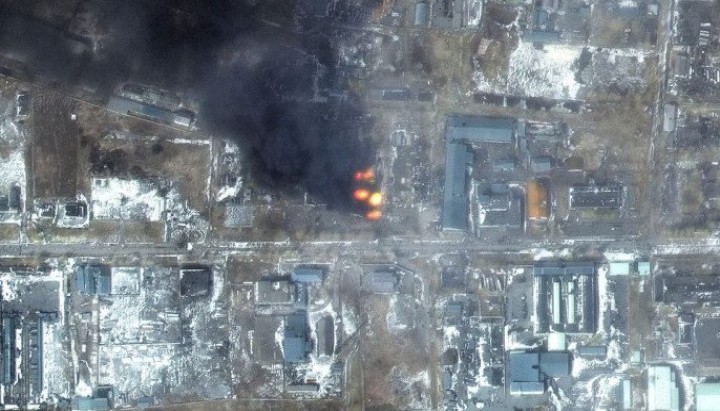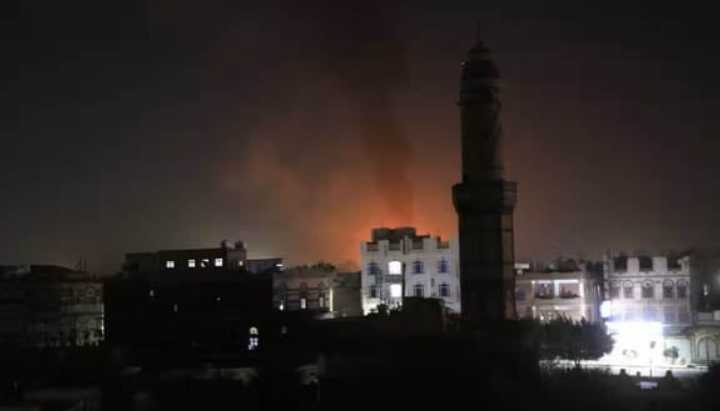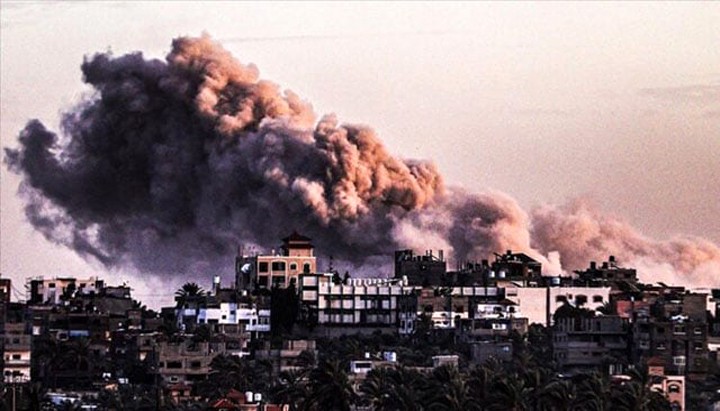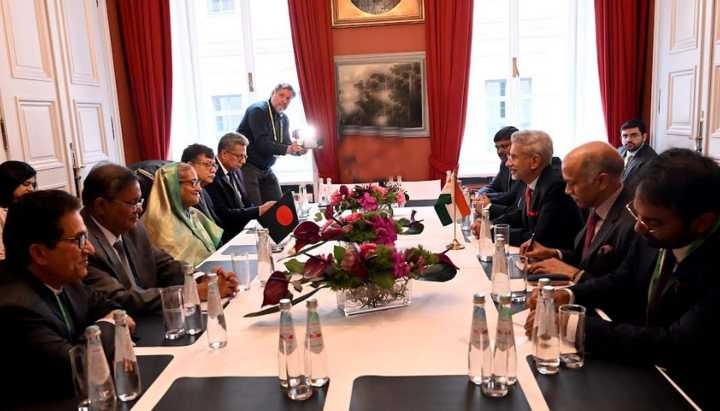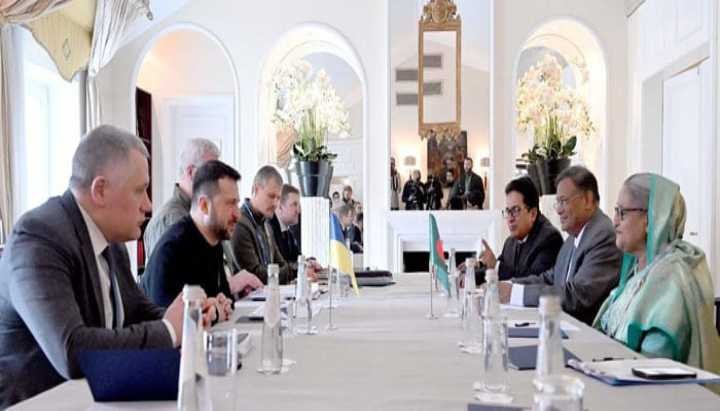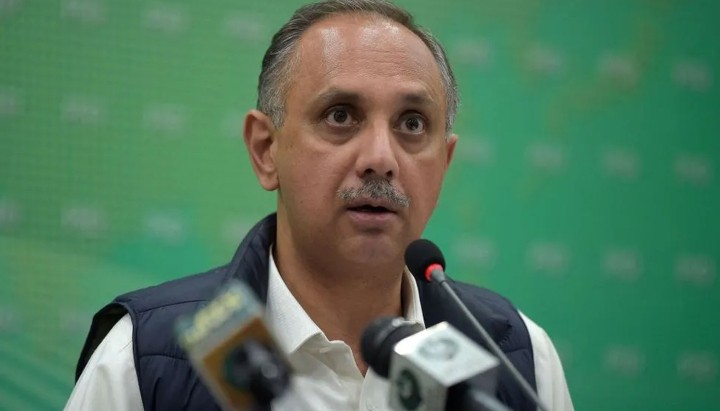The United States on
Monday warned China not to help Russia's invasion of Ukraine as Moscow allowed
the first convoy to escape besieged Mariupol, home to the worst humanitarian
crisis of the conflict.
Since the first week of the invasion, the biggest attack on
a European state since World War Two, the southeastern port has been surrounded
by troops, leaving hundreds of thousands of people to shelter without food or
water.
Russia has yet to capture any of the 10 biggest cities in
Ukraine since the start of the Feb. 24 attack, which the Kremlin calls a
"special military operation" to demilitarise and "denazify"
its neighbour.
Russia has asked for military and economic aid from Beijing,
according to US officials.
Moscow denies that, saying it has sufficient military
resources to fulfil all of its aims. China's foreign ministry labelled the
reports on assistance as "disinformation."
China had signalled willingness to provide aid to Russia, a
US official said as national security adviser Jake Sullivan met with China's
top diplomat Yang Jiechi in Rome.
"We have communicated very clearly to Beijing that we
won't stand by," State Department spokesperson Ned Price told reporters on
Monday. "We will not allow any country to compensate Russia for its
losses."
The West is weighing how to deal with any involvement from
China, top global exporter and No.1 foreign supplier of goods to Americans. The
Ukraine crisis has also raised fears in self-governed Taiwan, which Beijing has
vowed to reclaim.
Russian state TV is the main source of news for millions of
Russians, and closely follows the Kremlin line, but on Monday a rare anti-war
protest occurred in a studio during the main news programme on Channel One. A
woman held up a sign in English and Russian: "NO WAR. Stop the war. Don't
believe propaganda. They are lying to you here."
Humanitarian crisis
As world powers jostle for position, the humanitarian crisis
remains bleak.
In Mariupol, local authorities say as many as 2,500
civilians have died so far, a toll that cannot be independently confirmed. Some
people were able to finally flee on Monday.
"In the first two hours, 160 cars left," Andrei
Rempel, a representative of the Mariupol city council told Reuters.
"The city continues to be bombed but this road is not
being shelled."
Russia says it does not target civilians.
But Kyrylo Tymoshenko, a senior aide to Ukrainian President
Volodymyr Zelenskiy later said Russia had yet again blocked a humanitarian aid
convoy trying to reach the city with supplies.
Obtaining safe passage for aid to reach Mariupol and
civilians to get out has been Kyiv's main demand at several rounds of talks.
All previous attempts at a local ceasefire in the area have failed.
'It's hard' says negotiator
Russian and Ukrainian delegations held a fourth round of
talks on Monday - by video link rather than in person in neighbouring Belarus
as in the past - but no new progress was announced.
"Communication is being held yet it's hard,"
tweeted Ukrainian negotiator Mykhailo Podolyak, who had earlier created some
hope of headway by saying on Sunday that Russia was beginning to talk
"constructively".
The talks had paused for the day but would resume on
Tuesday. Russia "still has a delusion that 19 days of violence against
(Ukrainian) peaceful cities is the right strategy", he said.
Russian negotiator Vladimir Medinsky posted on social media
that Russia was sticking to its key objectives: "We're aiming to do
everything possible for the achievement of the goals set by Vladimir Putin, for
Russia's peaceful future."
EU member states had agreed on a fourth package of sanctions
against Russia, according to France.
Details were not officially disclosed, but diplomatic
sources said they would include an import ban on Russian steel and iron, an
export ban on luxury goods, and a ban on investment in the energy sector.
Chelsea soccer team owner Roman Abramovich and 14 others
would be added to the EU blacklist.
Drone video footage released by Ukrainian forces in Mariupol
showed a desolate wasteland of bombed out buildings, many in flames, with smoke
pouring into the sky.
Russian forces have been bearing down on Kyiv from the
northeast and northwest, but have made little progress so far towards the
capital itself, despite heavy fighting that has reduced suburbs on its
outskirts to rubble.
In Kyiv itself, an apartment block was hit by a missile
overnight, killing at least one person, officials said.
"The staircase was not there anymore, everything was on
fire," apartment resident Maksim Korovii said.
He and his mother ran out to the balcony. "We managed
to put on whatever clothes we had at hand and made our way from balcony to
balcony and in the end we climbed down by the next building's entrance."
In the south, where Russia has made more progress, residents
of Odessa, a polyglot Black Sea port of 1 million people, fear their city could
be next. They formed a human chain on Monday, singing patriotic songs as they
carried sandbags from the beach.
In Donetsk, held since 2014 by Russian-backed separatists,
Russia's defence ministry said at least 20 people had been killed and 28
wounded by what it said was a Ukrainian missile with a cluster charge. It
released footage of a missile on a busy street and vehicles destroyed by
shrapnel.
Ukraine accused Russia or its allies of carrying out that
attack themselves as a pretext: "It is unmistakably a Russian rocket or
another munition," Ukrainian military spokesman Leonid Matyukhin said.
Reuters could not verify either account.
Pregnant woman dies in Mariupol
The Ukrainian foreign ministry said a pregnant woman who was
photographed being evacuated wounded from a maternity hospital in Mariupol
bombed by Russia last week had since died along with her baby. Reuters was not
able to verify this.
Despite video showing at least two pregnant women being
carried out of the ruins, Russia has said the hospital was not used at the time
and had been occupied by Ukrainian fighters.
The invasion has sent more than 2.8 million people fleeing
across Ukraine's borders and trapped hundreds of thousands in besieged cities.
Global financial markets rallied on Monday on hopes for
progress from the talks. Stocks rose while oil prices gave up some of their
massive recent gains.
Russia is the world's biggest exporter of combined oil and
gas, and Russia and Ukraine together supply nearly a third of the world's grain
exports, as well as metals and chemicals used worldwide in industry and
agriculture.
The war has caused a surge in commodity prices, threatening
the global recovery at a time when inflation in the developed world is already
at its highest since the 1980s and many poor countries are facing a food
crisis.
Russia itself has been cast into economic isolation never
before visited on such a big economy.


